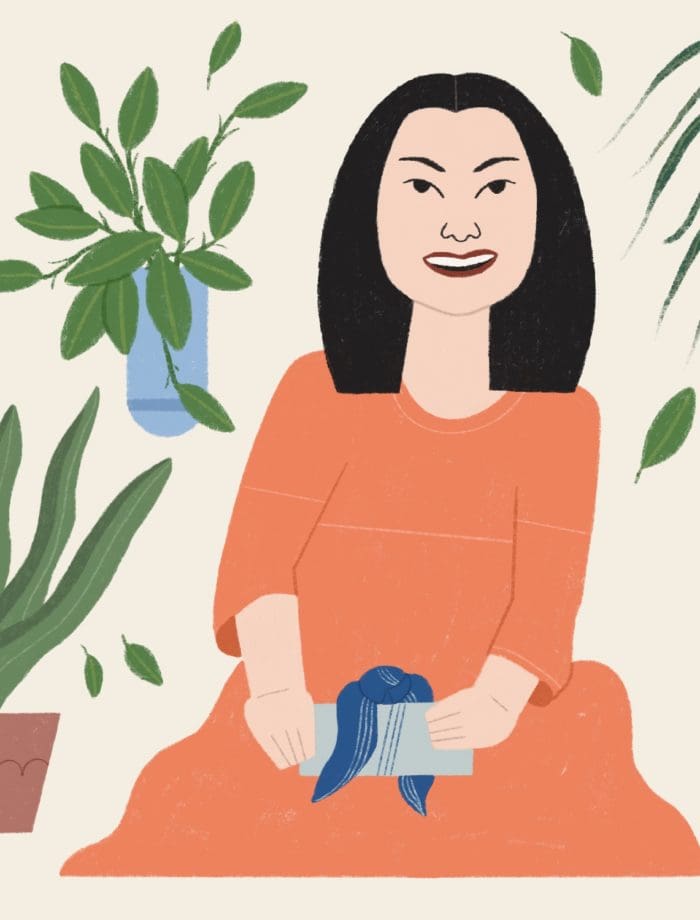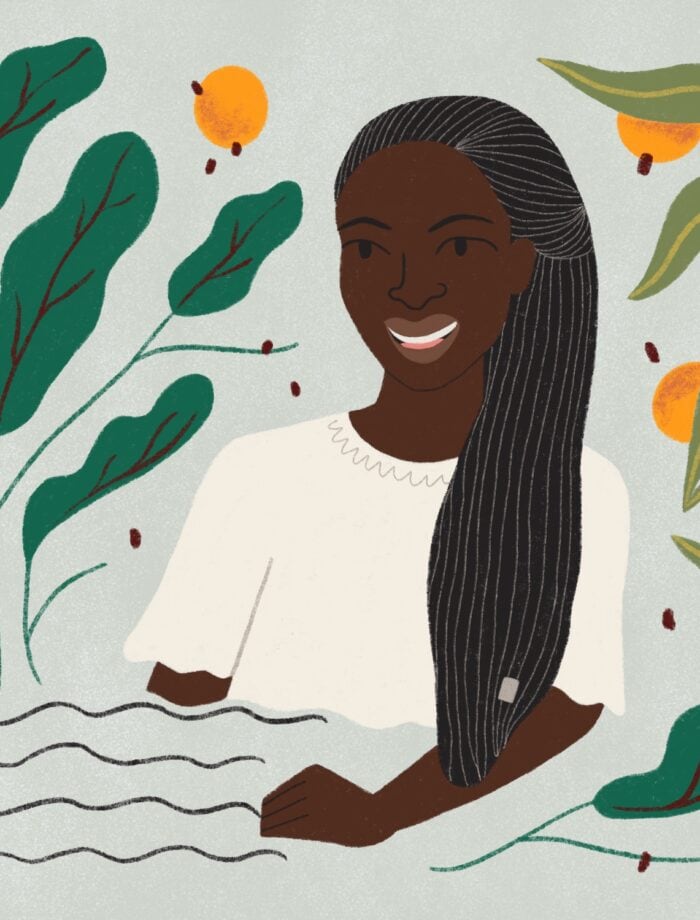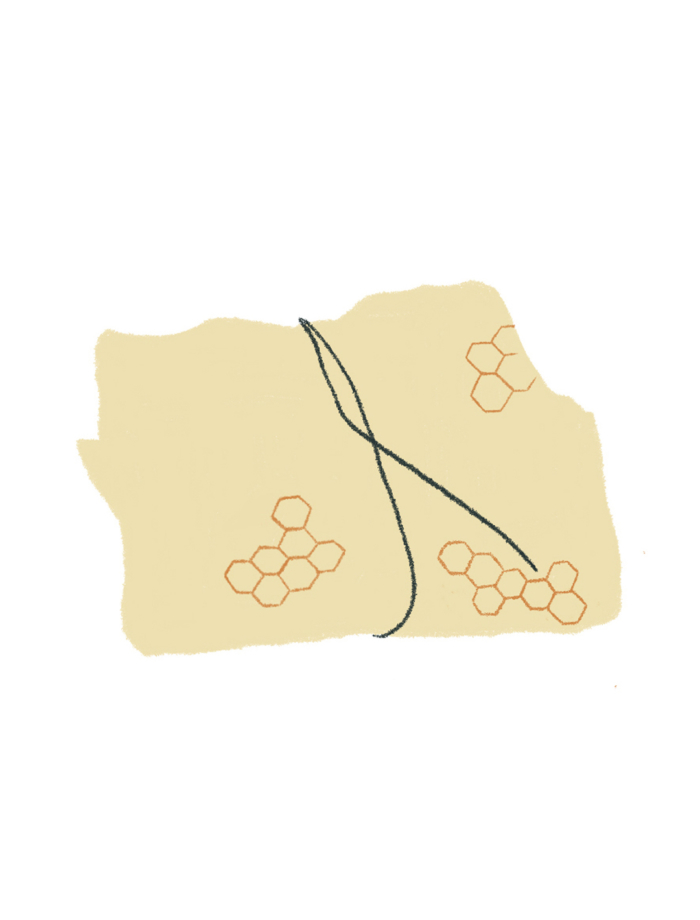It’s Moji week here at Closed Loop Cooking! You know her from her meditations on gardening intuitively and food access inequality, and of course her low-waste living expertise. But allow us to reintroduce you to our all star. Moji Igun is the founder and CEO of Blue Daisi Consulting, making it easier for small businesses to practice holistic sustainability. She’s a certified Zero Waste Advisor and serves on the board of directors for Zero Waste Washington. She also happens to be a self care ~ icon ~ who often serves Statement Earring Perfection™. Please enjoy this conversation where Moji shares some personal reflections on the balance between individual choice and structural limitations inspired by her essay, Sustainable living is an iterative process.
What are the cultural norms in your community that make it easier for you to make sustainability conscious choices?
Seattle has some pretty well-established hippie culture. I walk, bike, or take public transit the majority of the time and don’t feel weird doing so.
Many of my friends are either vegan, vegetarian, or limit their consumption of meat or dairy in some way. There are a lot of meatless options at local restaurants to choose from.
It’s also pretty common for folks to plan a day around going to the farmers market. It might be to get fresh produce from a farmer or just a place to gather socially and people-watch.
These are all pretty basic things but it’s sometimes jarring when I try to keep the same habits when I’m visiting my family in Michigan or traveling to a new place where those things aren’t so common.
When I have to hop in the car just to grab something from the grocery store or feel like I’m being high-maintenance by asking for an accommodation on something I order at a restaurant I realize how normal those things are in Seattle.
Have there been any developments of new cultural norms around sustainability or waste reduction where you live in the past few years or since you first moved there? What did that progress look like?
There are more options for shopping for sustainable lifestyle and household products in person. When I first moved to Seattle, there were limited options that took a bit of research to find or they’d be stocked in the fancy grocery stores in rich neighborhoods.
Now, there are stores specifically dedicated to supporting zero waste lifestyles popping up all over the place, and big box stores are getting more on board with selling what used to be niche products like bamboo toilet paper and toothpaste tablets. I still don’t think it’s fully accessible to everyone but it’s inching closer all the time.
It’s been a gradual change that feels motivated by consumers consistently asking for more options and also being supportive of their favorite small sustainable brands which allows them to grow and be sold in more places.
Do you have any go-to conversation starters or questions for friends / family for whom low-waste practices would be totally new?
I never want people to feel like I’m judging them or acting like a know-it-all when it comes to low-waste practices. I don’t know everything and I have a lot to learn from everyone I meet. I rarely ever start conversations intentionally but rather let them unfold naturally. I just do my best to normalize my habits because, to me, they are pretty uninteresting and normal.
I had a friend see me using toothpaste tablets and she asked to try them out. I had another friend notice me bring my stainless steel containers to a restaurant for leftovers and they said they wanted to try that sometime. Another time, I brought a Stasher bag to a grocery store and ended up having a whole conversation with my cashier at checkout.
I stick to answering questions or sharing my experience if people seem curious. I’m also always listening to the challenges and barriers they communicate when they have feedback to share about a specific habit. It helps me better understand where they’re coming from and keeps me tuned in to what people who don’t constantly think about trash are thinking about.
What is something you wish was more of a norm in your community? And / or Is there anything you’re actively working on trying to normalize?
I’m actively working to normalize reusable items being the default when it comes to eating out like getting a cozy mug when you get a chai latte at a coffee shop instead of everyone getting a disposable paper coffee cup. It’s one of my projects for work but I’m also personally getting back into the habit of bringing my own coffee cup, water bottle, and reusable utensils when I’m out and about.
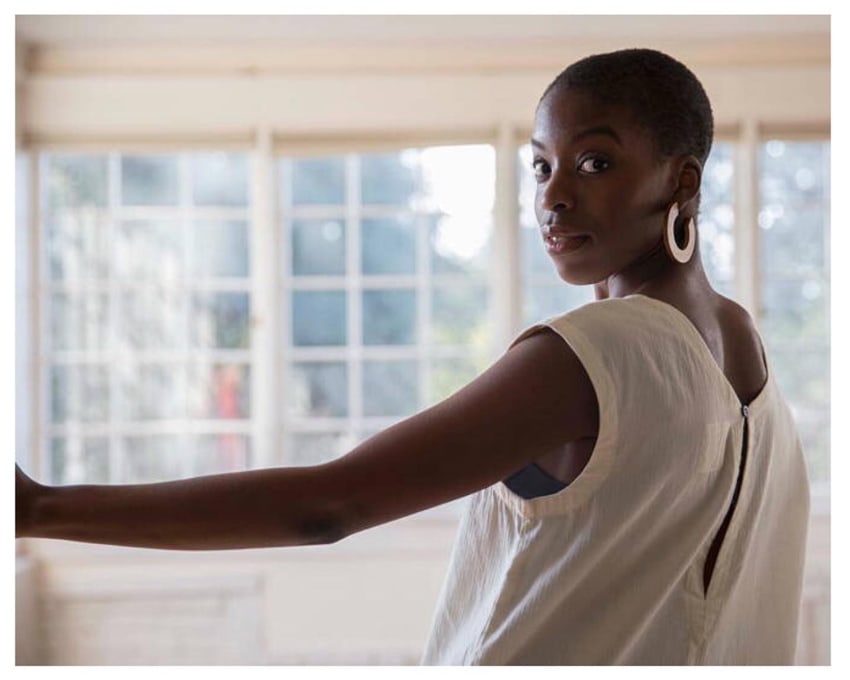
Do you and your partner have any cultural norms super specific to your household?
We’re both working on learning more skills so we can be better in the kitchen. We love going to the grocery store or farmers market to experiment with different varieties of produce. On that note, we tend to only shop for food for a few days at a time. We live near a few grocery stores which means we either bike or walk. This means we can only buy what we can carry in one trip. It’s one of the ways we manage how much food can go bad in a typical week.
How have the two of you navigated differing preferences (if you have any!) around certain low-waste habits or lifestyle things?
My partner is very open to trying just about everything I am. He hasn’t had any issues with switching most of our household products to low waste and / or local options like our cleaning products, dishwasher soap, and laundry detergent. I tend to buy the majority of the things for the house and he does the majority of the chores so as long as I keep things in stock, our home stays functioning just fine. We work really well as a team. The biggest difference I can think of is that I keep away from cheese and he loves it so we sometimes can’t share food when we order takeout.
You mentioned having a relaxed attitude toward things like tossing moldy food here and there, and adjusting how you operate / plan as needed. Can you share another example of something you’ve had to let go of a little because trying to do it perfectly was negatively impacting your quality of life?
I’ve gotten much more relaxed about just about everything related to sustainable living. Specifically, I’m much less strict about the way I eat. When I was still learning about my needs and the options that exist to meet them, I was trying to be perfectly vegan and zero waste without fully understanding how that would actually work in reality. It got to the point where I wasn’t feeding myself immediately when I was hungry because I was stressed about ingredients or packaging. That’s when I knew I needed to give myself way more grace. Now, I’ll just eat whatever makes me feel good and am taking my time to figure out what eating sustainably looks like for me. Right now, I’m focusing on cooking at home more often, growing herbs and greens in my backyard, and enjoying the experience of gathering around a table with people I love.
What is one piece of advice you’d give to someone reading this who wanted to take action to start building low-waste cultural norms in their community?
Be open to trying new things.
Things like using sugar wax or a safety razor for hair removal, buying food at bulk grocery stores, shopping for secondhand furniture, not owning a car, composting, gardening, and choosing to travel by train whenever I can are all things that have become normal to me in the past 8 – 10 years. These habits have slowly become less unusual with the people I spend the most time with. The same can happen, in time, for the norms you’re trying to establish even if you’re the only one doing them for a while.
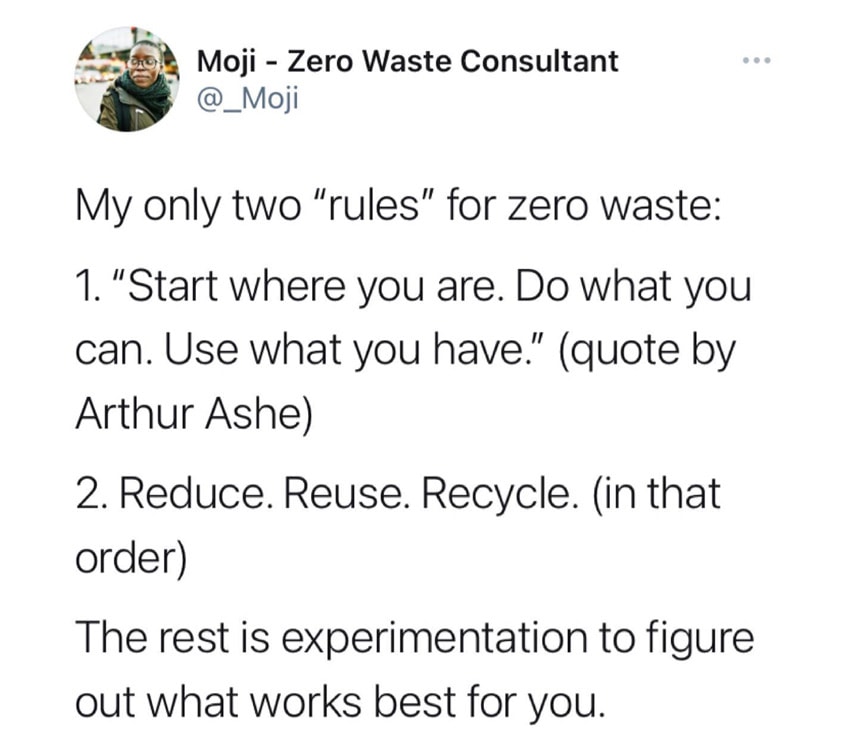
Thank you Moji! We’re taking the reminder to trust the process and make progress where we can. Appreciate your infinite insights <3

